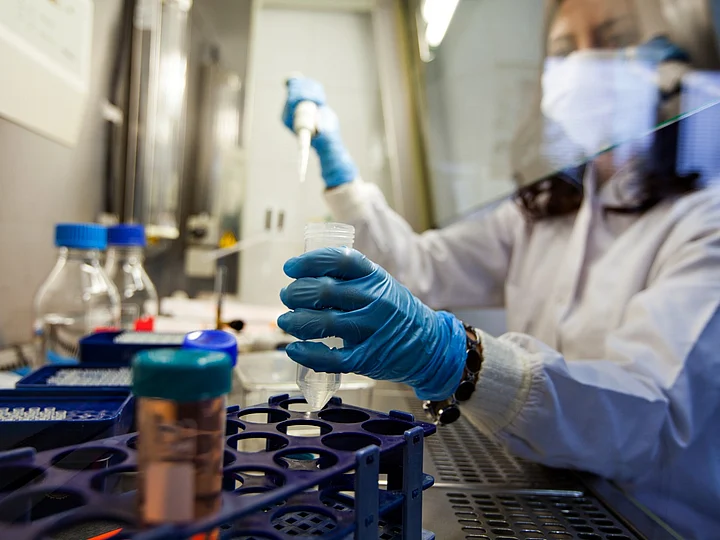Nowadays, it's quite common to see someone who is very healthy, doesn't smoke, drink, or has a bad lifestyle but still gets diagnosed with cancer. Sometimes, the reason behind this is what we call genetic cancer, or hereditary cancer. This means that certain cancers have a genetic basis, which means they're caused by changes in the genes that we inherit from our parents. These genetic changes can make someone more likely to develop specific types of cancer. While many cancers are influenced by a mix of genes, environment, and lifestyle, hereditary cancer comes from mutations passed down in families that significantly increase the risk of getting cancer. Hence, Doctors typically ask for genetic tests (DNA tests) to confirm if someone has an inherited (hereditary) cancer caused by genetic mutations. About 5% to 12% of all cancers are caused by genetic mutations. If someone has an inherited cancer, healthcare providers may suggest family members undergo the same tests to see if they have the same genetic mutations.
According to Dr. Janakiram Bobbillapati, Head of Microbiology at TRUSTlab Diagnostics. these are the tests one should take for genetic cancer:
Genetic Counseling: Before diving into genetic testing, consulting with a genetic counselor is pivotal. These professionals assess familial cancer history, discuss potential risks, and provide guidance on the appropriate genetic tests. Through comprehensive discussions, they empower individuals to make informed decisions about their health.
BRCA1 and BRCA2 Testing: Mutations in the BRCA1 and BRCA2 genes significantly increase the risk of breast, ovarian, and other cancers. Testing for mutations in these genes can help identify individuals with a heightened susceptibility to these malignancies. Such knowledge enables proactive measures, such as increased surveillance or risk-reducing surgeries, to mitigate the risk.
Hereditary Nonpolyposis Colorectal Cancer (HNPCC) Testing: Also known as Lynch syndrome, HNPCC predisposes individuals to colorectal and other cancers. Testing for mutations in genes associated with this syndrome, such as MLH1, MSH2, and MSH6, can identify those at risk. Early detection allows for enhanced screening protocols and preventive interventions to minimize cancer incidence.
Multi-Gene Panel Testing by Next-Generation Sequencing: As our understanding of genetic cancer susceptibility evolves, so does the complexity of genetic testing. Multi-gene panel tests analyze multiple genes simultaneously, offering a comprehensive assessment of cancer risk. These panels are particularly beneficial for individuals with a strong family history of cancer but no identifiable single-gene mutation. They provide a broader view of genetic predispositions, aiding in personalized risk management strategies.
Hot Spot Tumor Profiling by Whole Genome Sequencing: Tumor profiling involves analyzing the genetic makeup of cancer cells themselves. While not a direct test for inherited cancer risk, tumor profiling can reveal specific genetic alterations driving cancer progression. This information can guide treatment decisions, including targeted therapies and clinical trial eligibility. Additionally, tumor profiling may uncover hereditary cancer syndromes, prompting further genetic evaluation for the patient and their family members.
These tests not only shed light on individual cancer risk but also empower proactive healthcare decisions. Early identification of genetic predispositions allows for tailored screening programs, lifestyle modifications, and preventive measures. Furthermore, it facilitates the identification of at-risk family members, enabling cascade testing and interventions to break the cycle of inherited cancer.
(At The Quint, we question everything. Play an active role in shaping our journalism by becoming a member today.)
